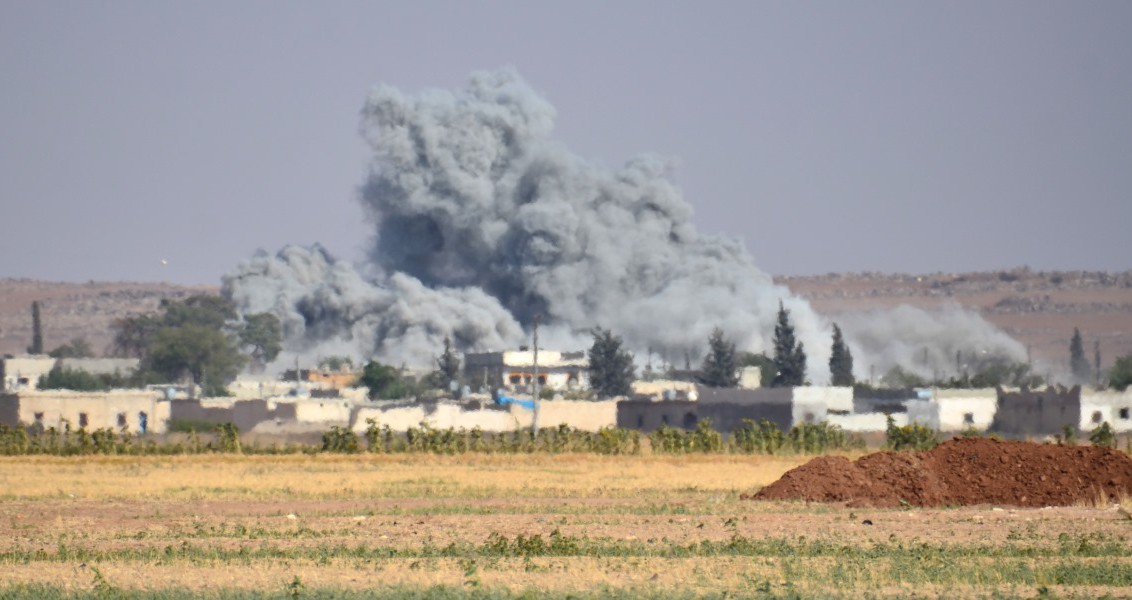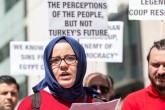The U.S. Embassy’s statement about the re-appointment of mayors in Turkey has generated a major debate in regards to relations between Turkey and the U.S. For a long time, Turkish-American relations analysts have been trying their best to underline the serious ramifications for Turkey of U.S. military assistance to the People’s Protection Units (YPG) in northern Syria. In a period when the PKK ended the cease-fire and started attacking Turkish security forces and conducting bloody terrorist attacks in city centers, relations between the YPG and the U.S. have become more important. Statements by U.S. officials in regards to their warning to the YPG about not attacking Turkey are not satisfactory when U.S. officials conducted the most significant public diplomacy blunders by tweeting extra friendly pictures with PKK/YPG members wearing YPG armbands. Statements by U.S. officials were further lost in translation after the YPG’s overambitious attempts to expand its territories in northern Syria and the PKK’s increasing terrorist attacks in Turkey.
First things first. Every analyst working on the subject knows that the PKK is the YPG is the PKK. The artificial distinction was one of the most serious and dangerous “innovations” by the U.S. administration. This was a step that would constitute a serious threat to the security of Turkey, the stability of the region and the future of bilateral relations. Turkish authorities protested military assistance for this group from day one; however, the U.S. insisted on this policy by showing them as the “only” viable force to fight DAESH. Of course, the fact that the U.S. never allowed the Free Syrian Army (FSA) to be empowered, emboldened and mobilized like it did in the case of the YPG is a whole other debate. Secondly, there are a lot of question marks in Turkey in regards to the “exit strategy” of its engagement with the YPG. Whether it is a tactical or operational partnership, what the U.S. is going to leave behind after the end of the conflict in Syria is a branch of the PKK that controls vast lands to the south of the border of Turkey and where the majority of human resources are PKK recruits in Turkey. It is not clear what the current administration is expecting these U.S.-trained and equipped members of the YPG to do after the conflict in Syria. What if these forces start to use the expertise, training and weapons they received to organize terrorist attacks in Turkey? Turkish authorities are already pointing to increasing expertise in the making of improvised explosive devices and planning of attacks since the beginning of the conflict in Syria. The PKK obviously increased its know how through its interaction with groups in Iraq and Syria. Following the end of the conflict in Syria, what if YPG fighters go back to their default settings and start attacking Turkish targets. Or even if the distinction is accurate, what if they start to transfer this information, training and expertise to PKK members? Does the U.S. have any contingency plan other than “warnings” that will prevent such a great threat against its NATO ally?
A third issue concerns the possible future implications of YPG-U.S. relations. While the U.S. assists the YPG in northern Syria, the PKK continues attacking Turkish security forces. Even in Qurban Bayram, at least 10 Turkish security personnel were killed by the PKK. This situation is generating major disappointment that in the long run may turn into increasing negative feelings not just in Turkish society but also in Turkish security forces as well. Does the U.S. have any plan to fix these feelings? Statements from embassy and state department officials are receiving very negative reactions from Turkish society, and these reactions need to be understood in the context of U.S. policy in regards to the YPG for the last three years.
[Daily Sabah, September 19, 2016]
In this article
- Foreign Policy
- Opinion
- 2016
- Cease-fire | Ceasefire
- DAESH
- Daily Sabah
- Free Syrian Army
- Free Syrian Army (FSA)
- Iraq
- Kurdistan Workers' Party Terrorist Organization (PKK)
- Middle East
- NATO
- NATO Ally
- People's Protection Units (YPG)
- PKK - YPG - SDF - PYD - YPJ - SDG - HBDH - HPG - KCK - PJAK - TAK - YBŞ
- Syria
- Syrian Civil War
- Syrian Conflict
- Syrian Crisis
- Terror
- Turkish Foreign Policy
- Turkish-American Relations
- Türkiye-US Relations
- United States (US)
- US Military



